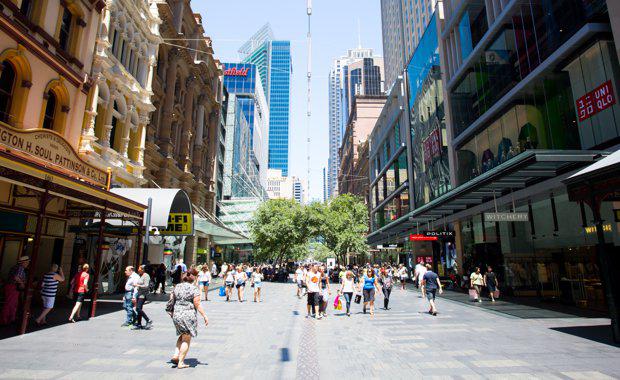Specialty Stores And Sub-Brands No Longer The Retail Underdogs
Australia’s listed landlords are reporting convincing growth in speciality sales, while discount department stores continue to face headwinds and the supermarket wars carry on.
Daniel Lees, Director of Research for Colliers International said the average spread between Australian regional retail asset yields and risk free rates was 3.69 per cent, or two standard deviations away from long term historical averages (and far higher than what they averaged over the past 20 years).
“In light of this, we expect there is room for retail property yields to compress further, thanks to low interest rates, but we expect that more transactional activity within the retail sector should reprice the market closer to where historical spreads deem these shopping centres should be.
“Australian shopping centre rents across all states and categories grew +0.62% over the year to 3Q16 and over the next 12 months to 3Q17, we expect this growth rate will increase to +2.14% on average,” he said.
Regional yields remain tightest in Sydney and Melbourne at averages of 5.5 per cent and 5.63 per cent respectively. Yields in Brisbane and Perth are both averaging 5.75 per cent although the range is slightly wider in Brisbane. Meanwhile Adelaide yields are marginally higher, averaging 5.88 per cent. Given the wide spreads on offer within the sector, Colliers believes that transactional evidence will reprice the market, bringing spreads closer to long term historical averages.
Colliers International’s latest national retail research and forecast report revealed the supply of shopping centre floor space picks up from 415,117sqm in 2016, to 426,924sqm in 2017, concentrated to Victoria (177,621sqm), Queensland (118,664sqm) and to a lesser extent New South Wales (72,000sqm). This escalates to a peak of 662,213sqm in 2018, with Queensland once again contributing significantly at 270,275sqm of floor space. New South Wales also makes up a sizeable proportion, bringing on 146,456sqm of space.
From this point, supply levels taper into 2019 (416,237sqm), 2020 (325,815sqm) and 2021 (129,461sqm), however note that longer dated supply levels will likely increase as development approvals are granted.
Michael Bate, National Director and Head of Retail for Colliers International believes the increasing level of shopping centre floor space will be met with demand from international retailers.
"We expect that landlords will begin to receive more enquiry from a variety of South African retailers who are looking to expand operations beyond their home shores," he said.
“Looking forward, growth within the African nation will face headwinds of economic instability, labour disputes, currency exchange challenges and a lack of distribution infrastructure."Mr Bate said that as a result, Australia will likely become an appealing option. "In addition to offshore tenant demand, domestic consumption will be supported by a robust level of population growth which according the ABS is running at an annual rate of 1.3 per cent, and expected to reach almost 30 million by 2029, and almost 40 million by 2056."

Outlook
“Looking forward, we expect that gross face rents within shopping centres will experience growth over the coming 12 months, based on a mix of CPI linked contractual increases and our forecasts for increasing retail demand," Mr Lees said.
"Our outlook for further rental growth is supported by institutional commentary during the most recent reporting season, where landlords including Charter Hall Retail REIT, Mirvac, Shopping Centres Australia, GPT and Vicinity Centres noticed positive releasing spreads in a range of 0.5 per cent to 7.5 per cent."Mr Lees also said large format retail supply has been dominated by the growth in hardware sector with both Masters and Bunnings driving new supply completions over the past few years, but this has slowed in 2016 with the closure of Masters. New supply for 2016 is 164,500sqm nationally with 2017 currently forecast at approximately 378,155sqm.
“Household goods retail sales remain strong and there is a strong correlation with a higher churn rate for residential property and retail trade growth in household goods. Although there is a slowing in the churn rate in residential transactions, there is a pick up in the amount of renovation activity within key markets.
"This is likely to continue to support further growth in the household goods over the next 12 months”.















